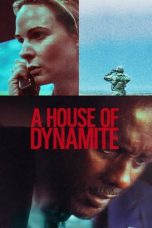The Great Dictator (1940) – Charlie Chaplin’s Timeless Satire
Introduction
“The Great Dictator,” directed and written by Charlie Chaplin, is a groundbreaking film released in 1940. As Chaplin’s first sound film, it stands out for its bold satire and poignant social commentary. The film critiques totalitarian regimes and promotes ideals of peace and democracy through a blend of humor and heartfelt messages. This review explores the film’s plot, character dynamics, thematic depth, and current viewing options.
Plot and Structure
“The Great Dictator” combines satire, comedy, and drama to deliver a powerful critique of fascism and dictatorship:
- The Premise: The film is set in the fictional country of Tomainia, which is under the oppressive rule of the dictator, played by Charlie Chaplin. The story parallels the rise of totalitarian regimes in the 1930s, particularly Adolf Hitler’s Nazi Germany.
- The Plot: The film follows two main characters:
- The Dictator (Adolf Hitler-like figure): Chaplin plays a tyrannical ruler who uses fear and propaganda to maintain control over Tomainia.
- The Jewish Barber: Also played by Chaplin, the barber is an innocent and kind-hearted character who has been mistaken for the dictator due to their physical resemblance.
As the dictator continues his oppressive reign, the barber’s life is disrupted by political turmoil. The plot intertwines the barber’s struggle for survival with his eventual role in the resistance against the dictatorship.
- The Conflict: The central conflict revolves around the clash between the dictator’s oppressive regime and the forces of resistance. The film also highlights the personal struggle of the barber as he grapples with his identity and the challenges of living under a totalitarian regime.
- The Resolution: The film concludes with a powerful and emotional speech delivered by the barber, calling for peace, unity, and human rights. This speech serves as a rallying cry against tyranny and a hopeful vision for a better future.
Performance Highlights
Charlie Chaplin’s dual role in the film is a testament to his exceptional talent and versatility:
- As the Dictator: Chaplin’s portrayal of the dictator is a masterful satire of authoritarian leaders. His performance captures the absurdity and cruelty of totalitarian regimes while providing a humorous critique of their methods.
- As the Barber: Chaplin’s depiction of the barber is endearing and relatable. His performance contrasts sharply with his role as the dictator, showcasing his range as an actor and his ability to evoke empathy from the audience.
- Supporting Cast: The film features strong performances from supporting actors, including Paulette Goddard as Hannah, the barber’s love interest and a member of the resistance. Her role adds depth to the film’s narrative and highlights the human cost of political oppression.
Thematic Depth
“The Great Dictator” is rich with thematic content and social commentary:
- Satire and Political Critique: The film uses satire to critique authoritarianism and the absurdities of totalitarian regimes. Chaplin’s portrayal of the dictator serves as a commentary on the dangers of unchecked power and the dehumanizing effects of oppression.
- Human Rights and Equality: The film advocates for human rights, equality, and democratic values. Chaplin’s speech at the end of the film underscores the importance of solidarity, compassion, and the fight for a just society.
- Resistance and Hope: The film highlights the resilience of individuals and the power of resistance against tyranny. It portrays the struggle for freedom and the hope for a better future despite the challenges posed by oppressive regimes.
- Identity and Redemption: The barber’s journey reflects themes of identity and redemption. His transformation from a victim of mistaken identity to a symbol of resistance underscores the potential for personal growth and the impact of individual actions on societal change.
Cinematic Excellence
Chaplin’s direction and the film’s technical aspects contribute to its enduring impact:
- Direction and Pacing: Chaplin’s direction is characterized by its blend of comedy and drama. The film’s pacing balances humorous scenes with serious social commentary, creating a compelling and thought-provoking experience.
- Cinematography: The film’s cinematography enhances its satirical and dramatic elements. The visual style supports the film’s narrative and adds to its overall impact.
- Score and Music: Chaplin’s musical score complements the film’s emotional tone and enhances its comedic and dramatic moments. The music adds depth to the film’s scenes and contributes to its overall atmosphere.
Cultural Impact and Reception
“The Great Dictator” has had a significant impact on film and popular culture:
- Critical Acclaim: The film is widely praised for its innovative use of satire and its powerful social commentary. It is considered one of Chaplin’s greatest works and a classic of cinematic history.
- Influence on Film and Politics: The film’s critique of totalitarianism and its advocacy for democratic values have influenced both filmmakers and political thinkers. Its message remains relevant in discussions about freedom and human rights.
- Enduring Popularity: “The Great Dictator” continues to be celebrated for its timeless message and Chaplin’s remarkable performances. It remains a significant part of film history and a testament to the power of cinema to address important social issues.
Streaming and Availability
For those interested in watching “The Great Dictator,” the film is available on various platforms:
- Amazon Prime Video: Available for rent or purchase on Amazon Prime Video, providing convenient access for viewers.
- Apple TV: The film can be rented or purchased on Apple TV, offering another option for viewing.
- Google Play Movies & TV: Available for rent or purchase on Google Play, providing additional flexibility for viewers.
- Hulu: The film may also be available on Hulu, providing an accessible option for streaming.
Conclusion
“The Great Dictator,” directed by Charlie Chaplin, is a groundbreaking film that combines satire, comedy, and drama to deliver a powerful critique of totalitarianism and a call for human rights and unity. Through its innovative storytelling, memorable performances, and poignant message, the film remains a timeless classic with enduring relevance. Available on various streaming platforms and digital services, “The Great Dictator” continues to captivate and inspire audiences with its timeless message and Chaplin’s unparalleled artistry.
















